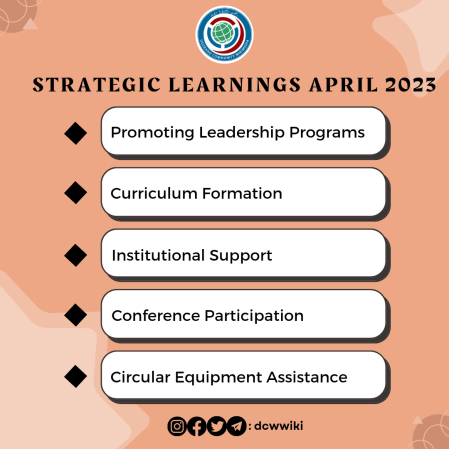April 2023 learnings from the Deoband Community Wikimedia (DCW) researchers include ideas related to leadership and skills infrastructure development. The research work was led by Tahura Aafi, who helped in finding a leadership trajectory, which the DCW subsequently submitted as a proposal to the Movement Strategy Team of the Wikimedia Foundation.
The whole research study revolved around the promotion of leadership programs, curriculum formation, institutional support, conference participation and “circular equipment assistance”. Several DCW volunteers participated in the WikiConference India 2023, and the conference allowed us to tell others about what DCW is all about.
Leadership programs are more than just helpful. These programs help in producing and training some quality people who are readily available and can lead the initiatives in your absence. These could include “Train the Trainer programs” or likely developing a study course. At DCW, we are focused at developing an educational curriculum that we could offer to institutions as a choice-based subject. Tahura’s research indicates that integrating Wikipedia in classrooms may help solve some puzzles.
The future of curriculum based leadership programs depends majorly on institutional support. You need to have your eye on certain institutions that can offer you support. From the perspective of a newcomer, “why should an academic institution offer this course?” You should have answers to all of these queries available on hand. Tahura suggests forming connections with the people in Communications Department at the Wikimedia Foundation, and keep hunting for local and international subjective-academicians. Inspiration is a thing that works. You need to inspire others about why the work you are doing is necessary, and someone from them would come to you saying, “We should set some time to maybe chat about research and some potential collabs”. WikiLearn could be a potential platform where you can give your curriculum/course a try.
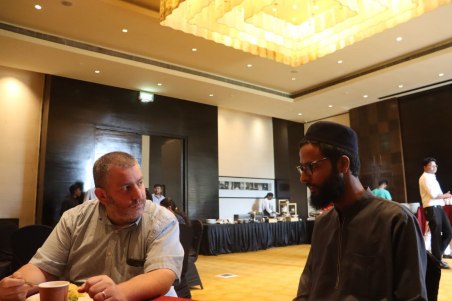
According to Tahura, it should be made necessary that we represent ourselves in each regional and local level conference, and in case of India, because of its multilingual culture, the conferences help us in reaching passionate volunteers from other communities, who happen to be ready for setting up a collaboration.
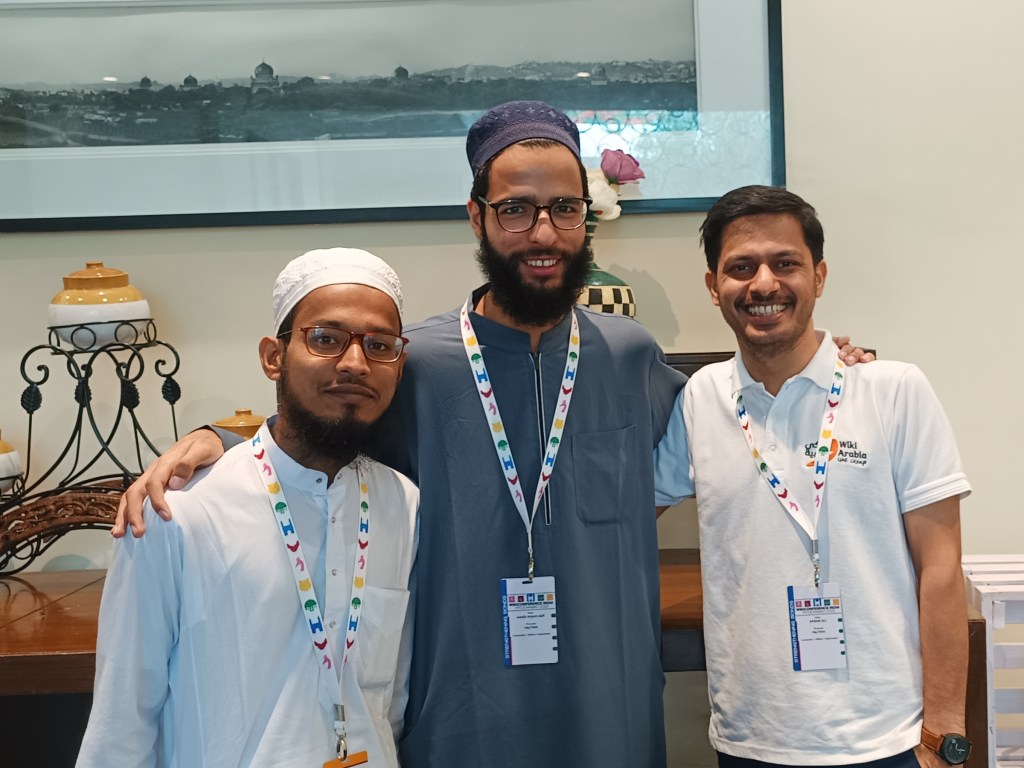
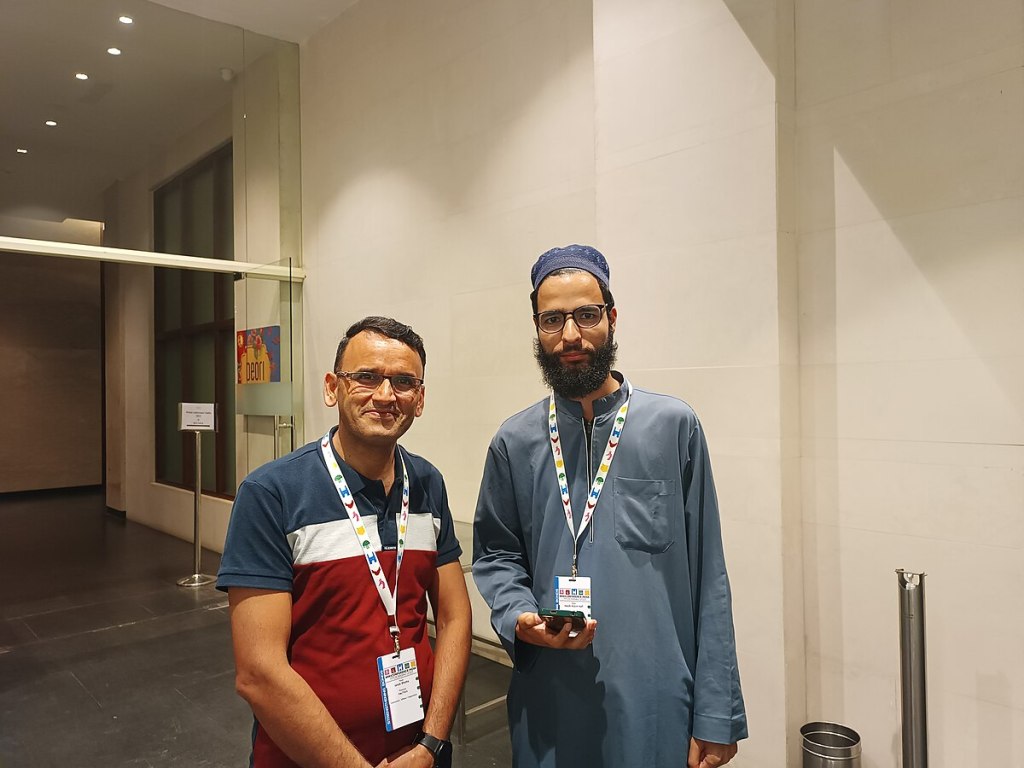
Conferences and other such events play an important role in getting your voices heard at a broader level. DCW was known to not everyone and attending the WikiConference India helped us get it known among so many passionate volunteers and several helpful people from the Wikimedia Foundation. During a conversation, Vidhu Goyal, Lead Communications Specialist at WMF, happily said, “Now I am going to follow you from my own accounts”. Runa Bhattacharjee was keen to know more about what DCW cares for, and Lisa Seitz-Gruwell enjoyed having a conversation about DCW and its works.
Conferences give you a better reach. Journalist Fredrick Noronha is a long time Wikipedian and free knowledge advocate. The conferences could help you meet such people, and subsequently share your ideas and goals with the wider movement and public through interviews.
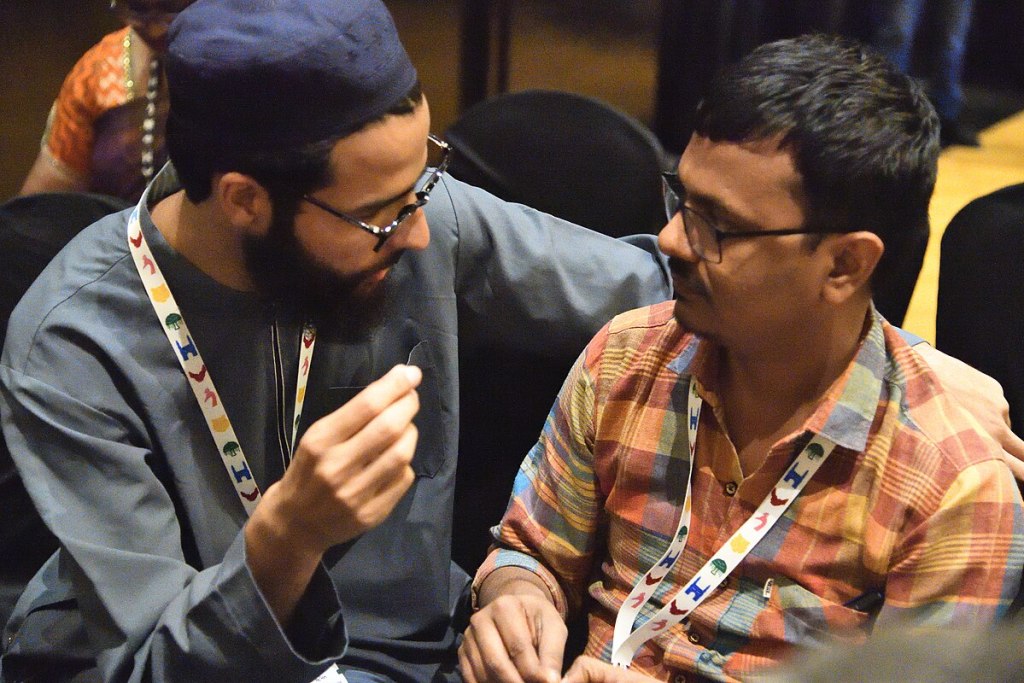

Circular Equipment Assistance might be a new term for you. It refers to providing equipment assistance in a one-by-one manner. At DCW, we are trying to design a series of photo/digitization programs in which we would form collabs at a local level and then select a certain volunteer to visit that place and complete a specific project. The volunteer would be given a required equipment that they would return back at the end of the project. The equipment would not be given to a specific volunteer forever, and it would always remain a permanent asset of the affiliate. This was among other ways regarded a way to retain editors for a long time period.

Can you help us translate this article?
In order for this article to reach as many people as possible we would like your help. Can you translate this article to get the message out?
Start translation
